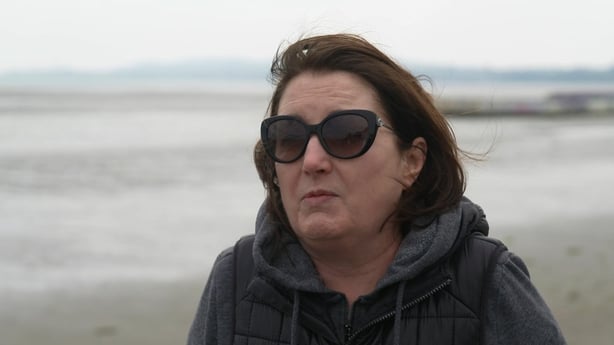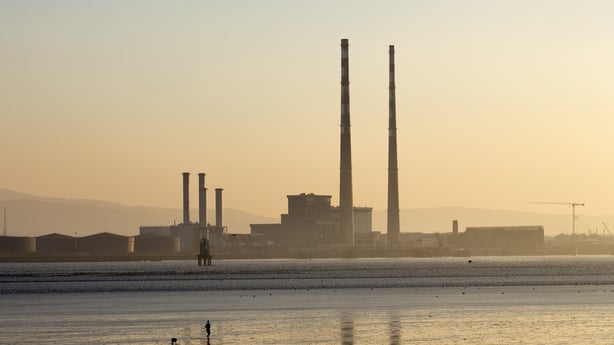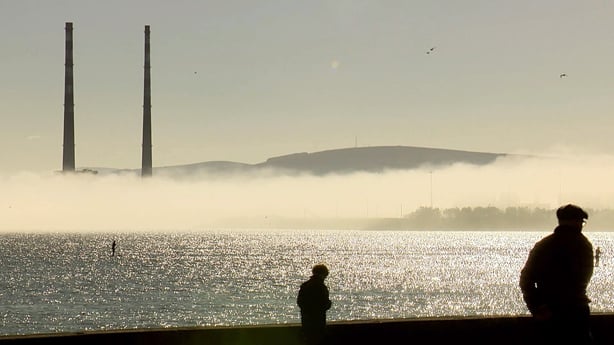In ten years' time, Michelle O'Brien fears that her house could lose its battle with the waters of Dublin Bay.
"I live down in Ringsend off South Lotts Road," Michelle told Prime Time. "My major concern is around coastal erosion."
Michelle wants the Government to explain how it's going to protect homes in Ringsend.
"It's happened in other countries and they prevented it," she said. "So when are we going to hear about it?"
Each time we are warned about climate change, the prognosis seems to get worse.

"When people get messages about climate change, it can often be quite disempowering – because it seems so depressing about where you're going," said Professor Jim Skea, the co-chair of the working group behind the recent report from the Intergovernmental Panel on Climate Change (IPCC).
Prof Skea, who is in Dublin to draft IPCC papers ahead of the next big global climate summit, was the one who uttered the stark "now or never" warning that grabbed headlines across the world.
He said that he felt his message had indeed hit home – and that there were reasons to be hopeful.
"What we were trying to do with the report," Prof Skea said, "is to kind of say, actually, that people can make a difference."
"It is not an intractable problem if people put their minds to it."
Tim Noonan said on a stroll through Sandymount that he does not expect climate change to affect him a whole lot. But he is still concerned about his children and their futures.
"It's for them I have a concern – around flooding and higher seas."

For Prof Skea, that kind of outlook is positive.
"It tells me that people are thinking about the future, and are thinking about their children, and their children's children – because they are the people who are going to have to pick it up," he said.
In 2018, the IPCC concluded that carbon emissions would have to be slashed by 45% by 2030 if we wanted to limit global warming to 1.5°C.
Cue headlines suggesting that we had just 12 years to save the world. That wasn't quite the message that the IPCC wanted to impart.
"We never said we had 12 years to save the world – because one of the messages we want to get across is that you don't actually fall over a cliff edge at any particular level of warming," Prof Skea said.
Instead, the impact of global warming will be gradual, he noted, in the sense that things will slowly get worse over years and decades.
"You'll hit thresholds and certain forms of life – certain ways of doing things – will not become viable anymore," he said.

We know one thing: Despite commitments to reduce emissions and take control of the issue, even the emissions reductions that are promised will not limit warming to 1.5°C.
As things stand, we are heading for warming of between 2.5°C and 3°C. And we will all feel the consequences of that with climate change and rising sea levels.
Prof Skea is not despondent, even then.
One of the things that the IPCC emphasised in its recent report was that we have actually made progress in recent years.
Carbon emissions are lower than they otherwise would have been had politicians not taken the action they have taken in the last decade or so.
It's not enough to help us meet our obligations under the Paris Climate Agreement, but it is something.
"I'm absolutely always positive about things – but we need to be, I think, realistic about it," Prof Skea said.






